Category: Coverage
-

TIME names David Baker among 100 Most Influential People in health
The list recognizes the people pioneering the world’s most impactful health innovations. TIME writes about Baker’s AI breakthroughs and scientific leadership.
-
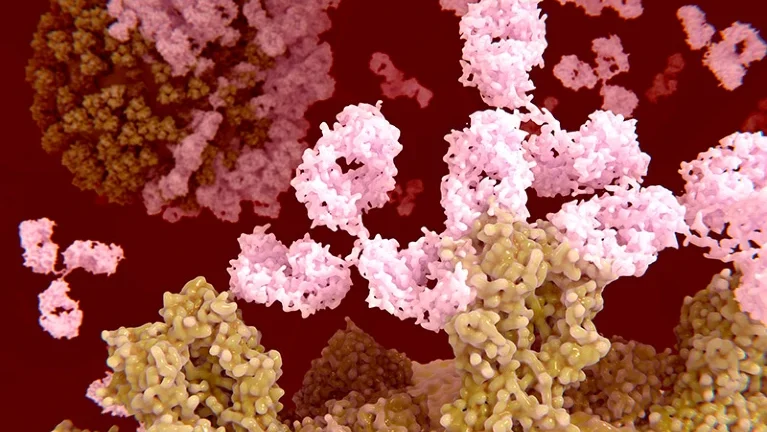
Nature: “‘A landmark moment’: scientists use AI to design antibodies from scratch”
In a proof-of-concept study, we show that RFdiffusion can be tuned to generate antibodies that bind influenza and other targets.
-

Nature: “Seven technologies to watch in 2024”
AI-enabled protein design is a technology area you’ll want to keep an eye on, according to Nature. With massive training datasets and ever more sophisticated deep-learning approaches, tools like our own RFdiffusion All-Atom are opening the door to custom enzymes, advanced biomaterials, and more. From Nature: Deep learning for protein design Two decades ago, David…
-

AstraZeneca to buy Icosavax for $1.1B
Today we learned that Icosavax, a Seattle-based vaccine design company born from innovative research conducted here at the Institute for Protein Design, will be acquired by AstraZeneca in a deal worth up to $1.1 billion. “This is a significant moment for the UW School of Medicine, showcasing how fundamental research can lead to groundbreaking technologies…
-

Lynda Stuart Joins CEPI’s Scientific Advisory Committee
We are proud to announce that our Executive Director, Lynda Stuart, MD, PhD, has been appointed to the Scientific Advisory Committee (SAC) of the Coalition for Epidemic Preparedness Innovations (CEPI). CEPI, a key player in global health initiatives, has expanded its SAC with nine new experts, including Dr. Stuart, to steer its innovative endeavors in…
-
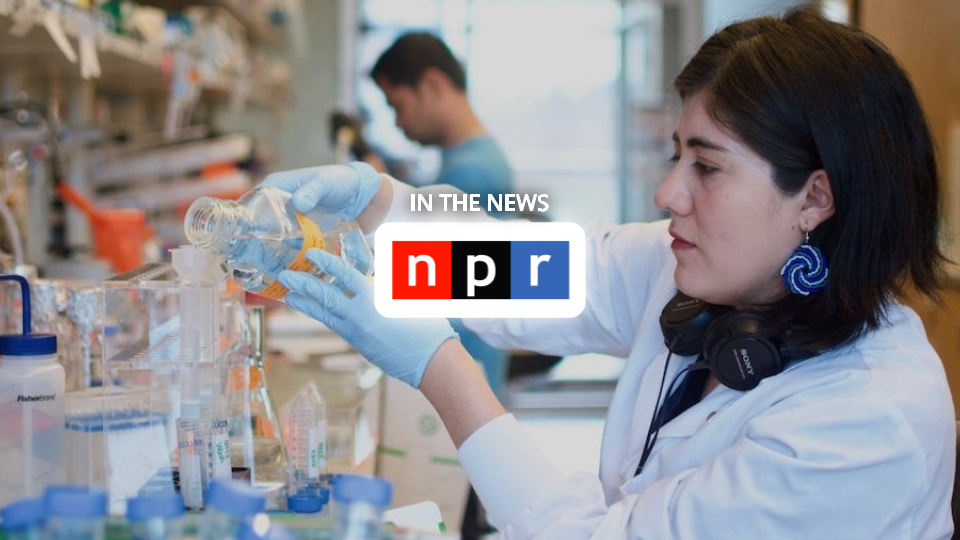
NPR: “Scientists are using AI to speed up discoveries”
NPR senior editor and correspondent Geoff Blumfiel recently visited our labs as part of his coverage of how artificial intelligence is accelerating scientific research.
-
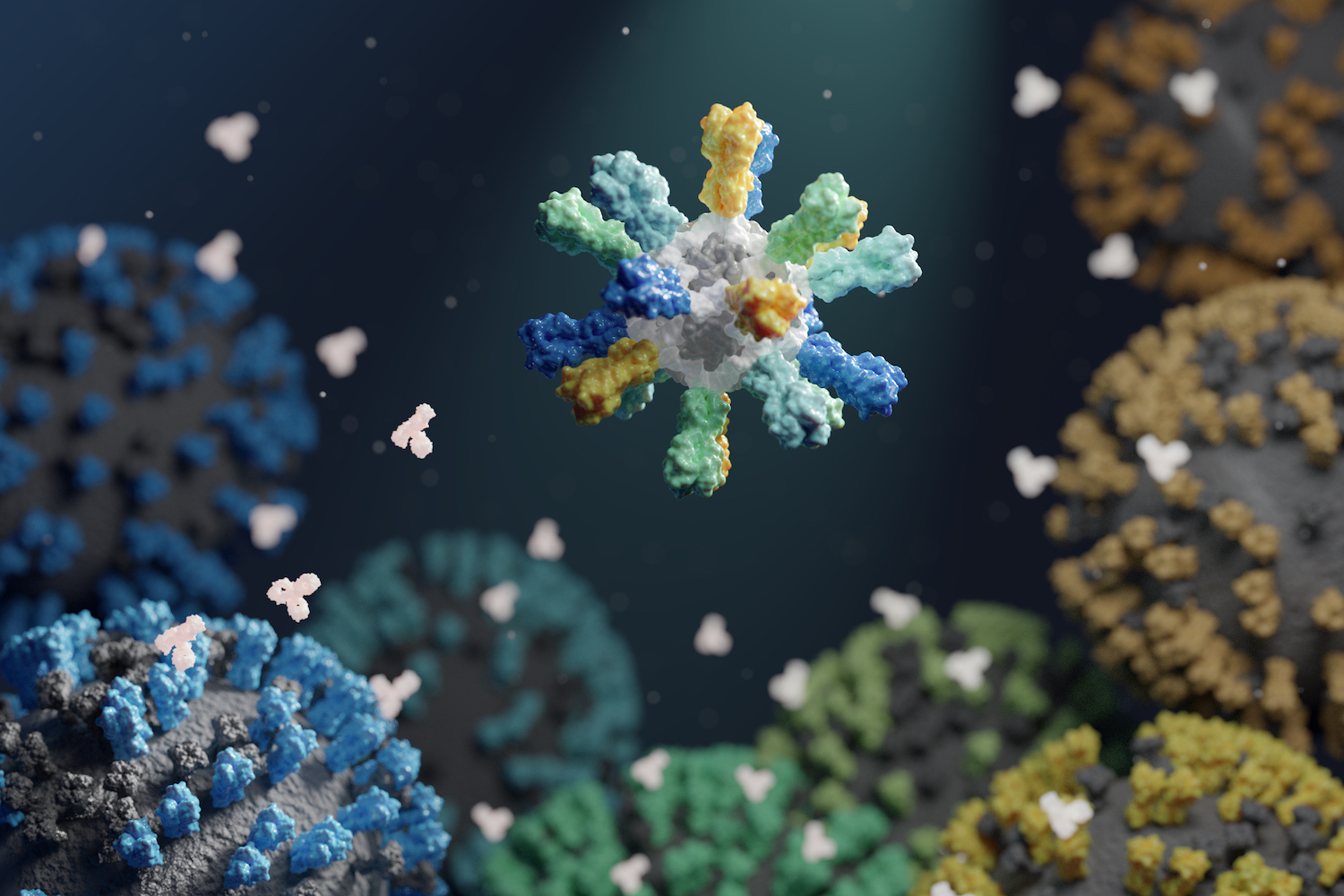
NIH highlights the King Lab’s universal flu vaccine research
In a quest to thwart future pandemics, the King Lab has made significant strides toward the development of universal vaccines, as recently noted by the National Institutes of Health. Traditional vaccines—while crucial—only target certain strains of a given disease. Universal vaccines, on the other hand, are meant to train the immune system to combat all…
-
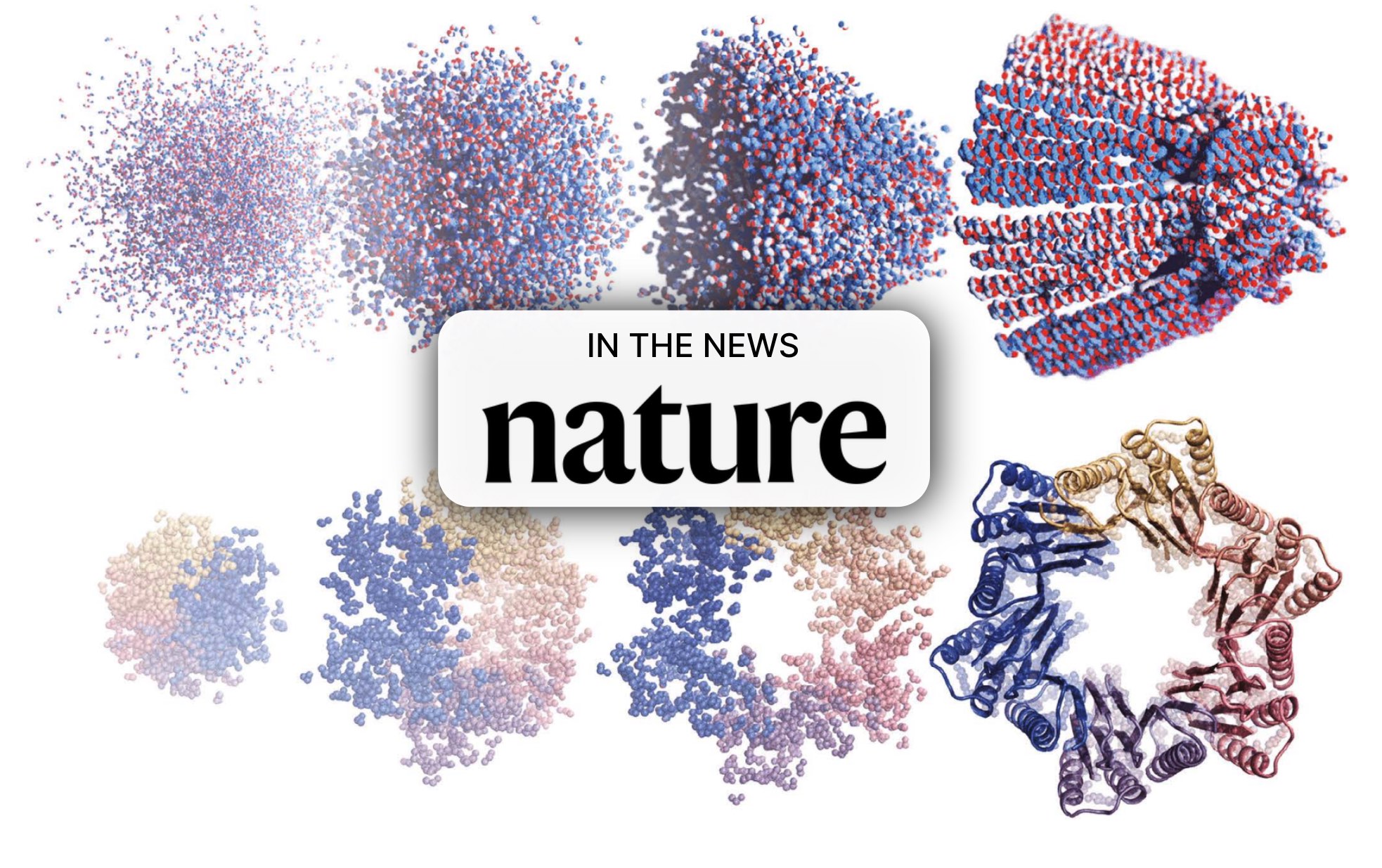
Nature: “AI tools are designing entirely new proteins that could transform medicine”
RFdiffusion was published in Nature this week. The journal reports on how it and other generative algorithms are being used to create custom biomolecules in seconds.
-

C&EN: “Generative AI is dreaming up new proteins”
Chemical & Engineering News reports that it’s time for chatbots and image generation to move over. AI-powered protein design is having a moment.
-
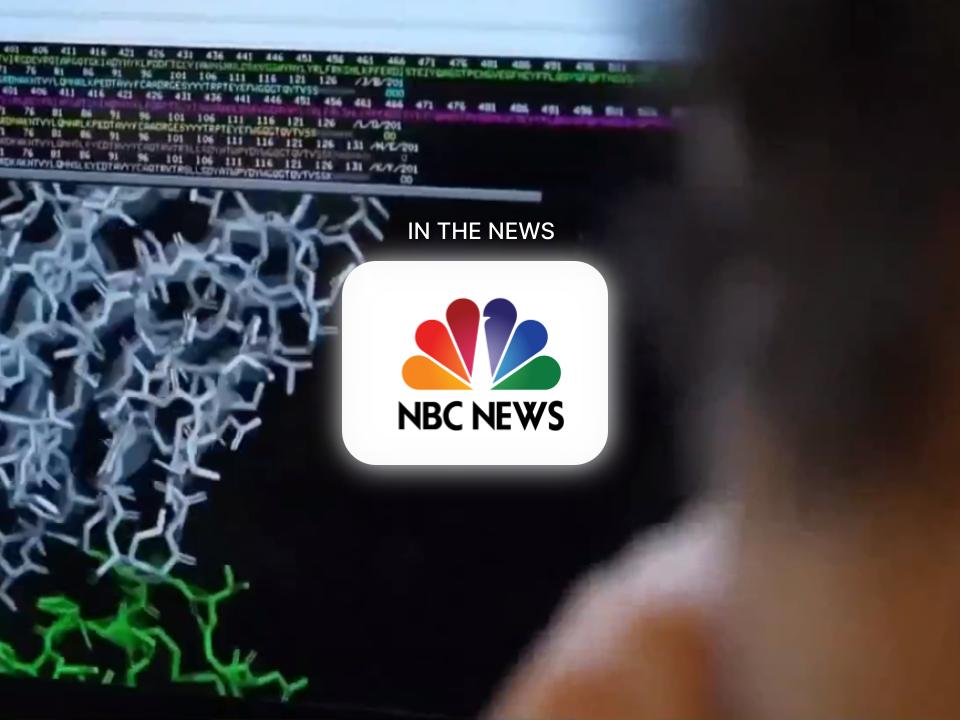
NBC: “Scientists use new A.I. tech to fight diseases”
NBC reports on how our scientists are harnessing artificial intelligence to improve how proteins for medicines and vaccines are developed.
-
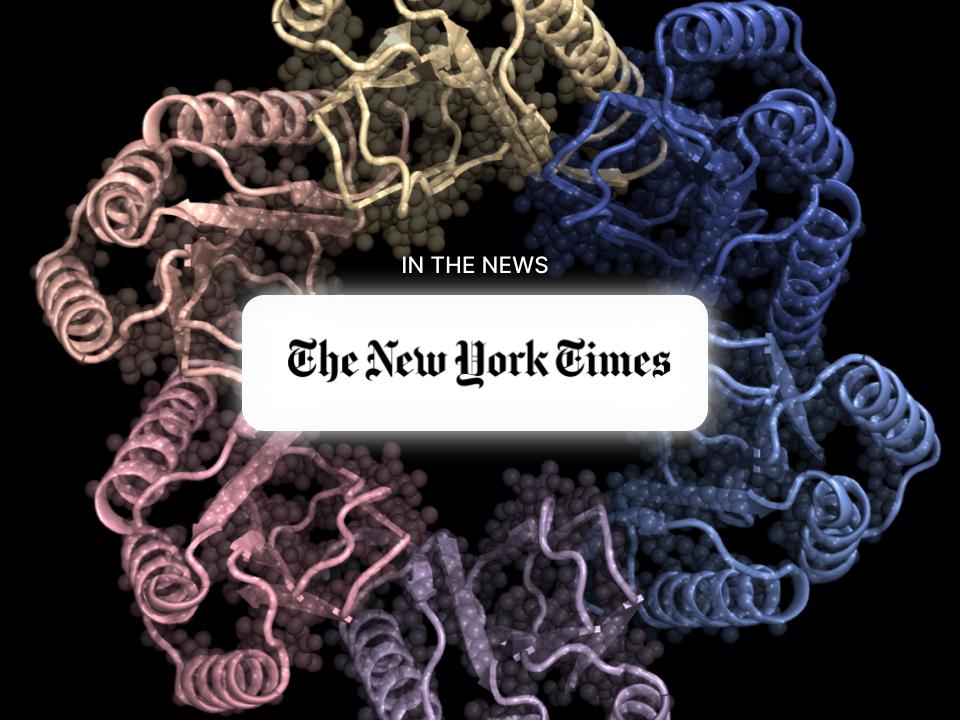
NYT: “A.I. Turns Its Artistry to Creating New Human Proteins”
The New York TImes has reported on how, Inspired by digital image generators like DALL-E, our scientists are building artificial intelligences that can fight cancer, flu and COVID-19.
-
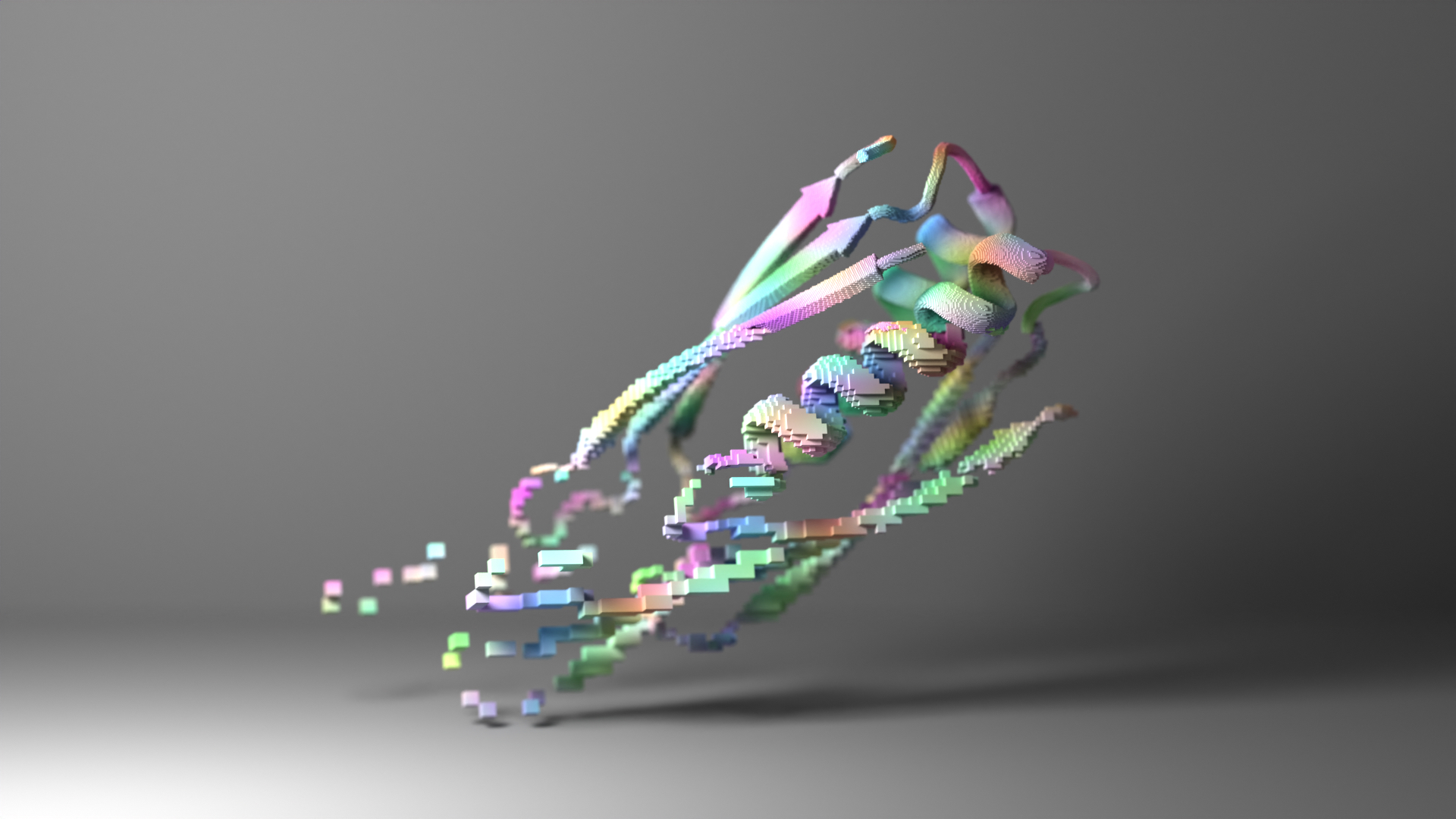
ProteinMPNN excels at creating new proteins
Over the past two years, machine learning has revolutionized protein structure prediction. Now, three papers in Science describe a similar revolution in protein design. In the new papers, scientists in the Baker lab show that machine learning can be used to create proteins much more accurately and quickly than previously possible. This could lead to…
-
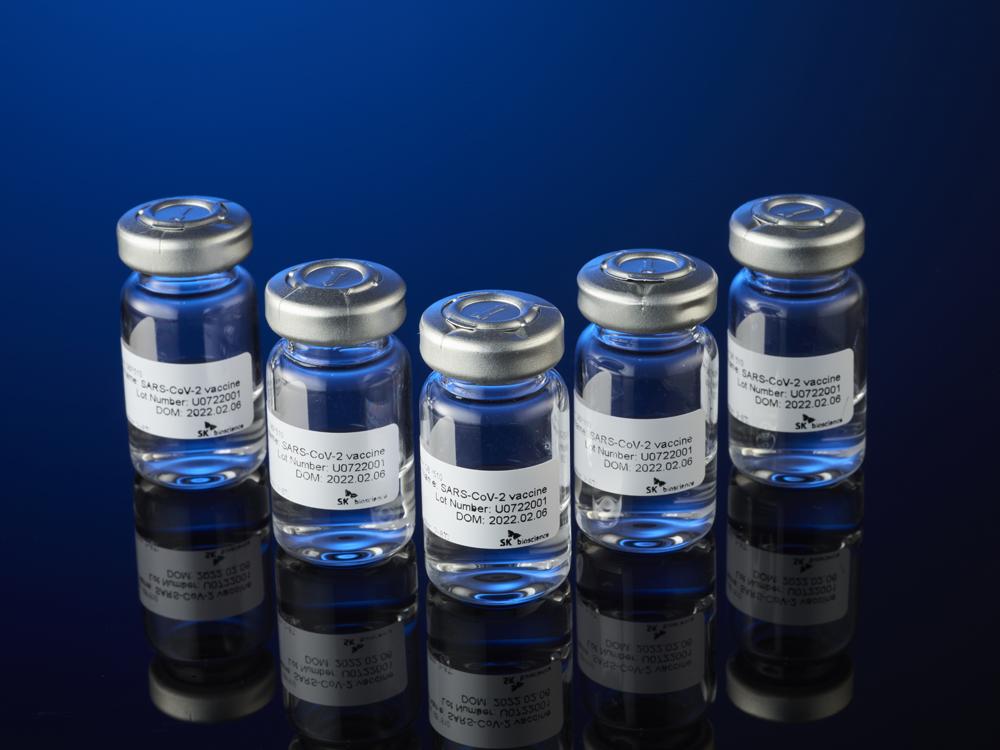
COVID-19 vaccine with IPD nanoparticles wins full approval abroad
Clinical testing found the vaccine outperforms Oxford/AstraZeneca’s. The vaccine, now called SKYCovione, is the world’s first computationally designed protein medicine. University of Washington to waive royalty fees for the duration of the pandemic. A vaccine for COVID-19 developed at the University of Washington School of Medicine has been approved by the Korean Ministry of Food…
-
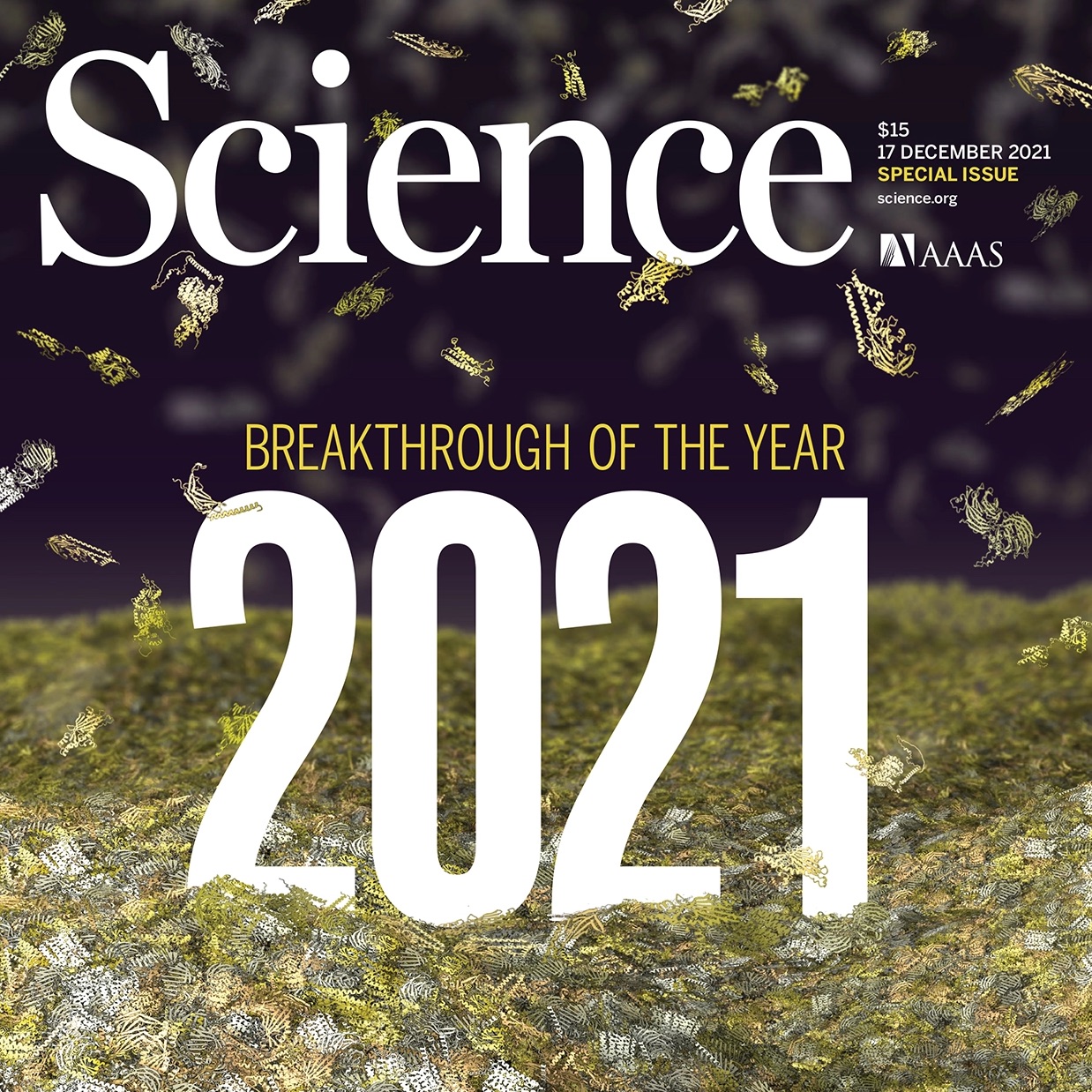
Breakthrough of the Year
The journal Science has selected artificial intelligence algorithms that predict the three-dimensional shapes of proteins — as well as the blizzard of protein structures they have revealed — as their 2021 Breakthrough of the Year. We are honored to have our work in this field recognized alongside that of the company DeepMind. As David Baker told…
-
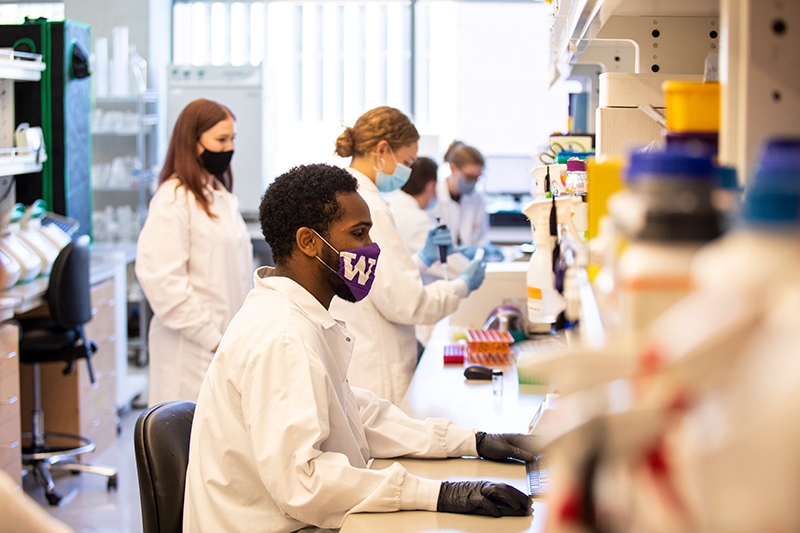
UW BIOFAB: a force for reproducible science
This article was written by Renske Dyedov (UW) Key to advancing any new scientific discovery is the ability for researchers to independently repeat the experiments that led to it. In science today, particularly biology, the lack of reproducibility between experiments is a major problem that slows scientific progress, wastes resources and time, and erodes the…
-
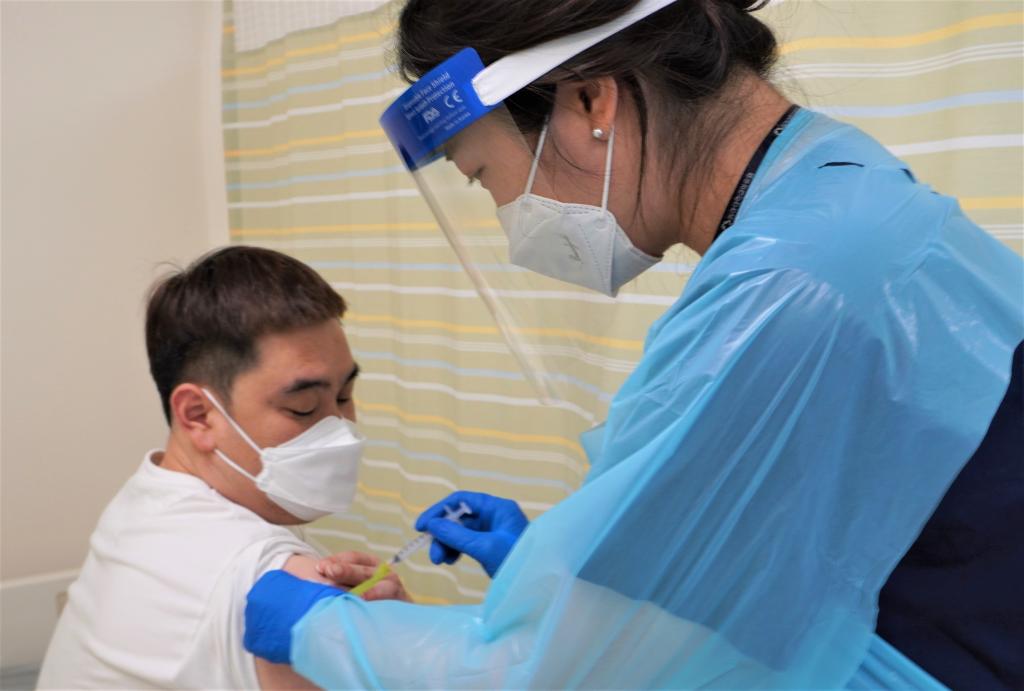
COVID-19 vaccine with IPD nanoparticles meets Phase 1/2 trial goals
This report was written and translated into English by SK bioscience. (Image: SK bioscience) SK bioscience (CEO Jae-yong Ahn) announced on November 4th that the company has confirmed a positive immune response and safety in the final analysis result of the phase I/II clinical trial of the COVID-19 vaccine candidate, ‘GBP510,’ co-developed with the Institute…
-
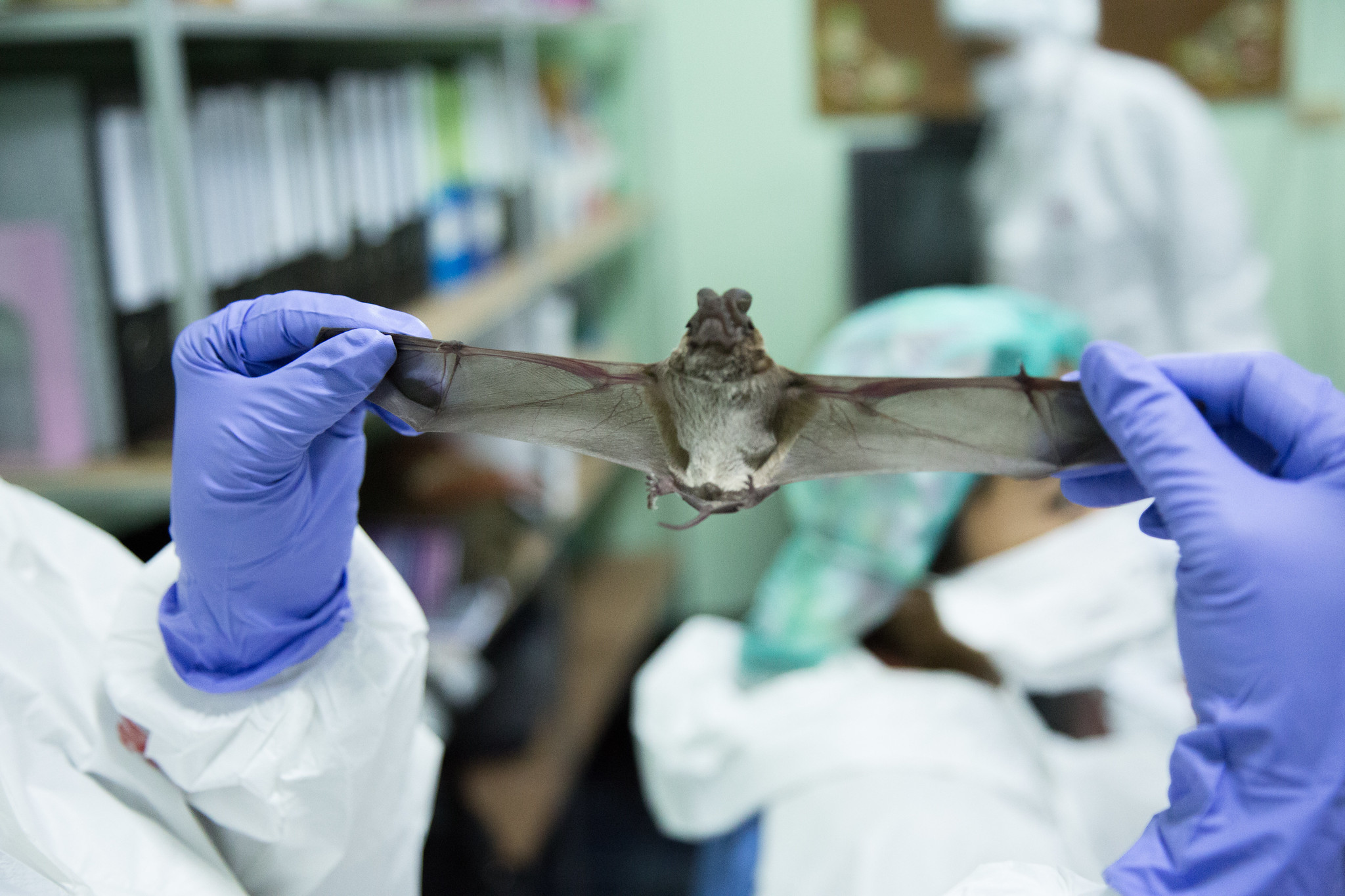
Baker lab joins USAID’s $125M project to detect emerging viruses
To better identify and prevent future pandemics, the University of Washington has become a partner in a five-year global, collaborative agreement with the U.S. Agency for International Development. The newly launched Discovery & Exploration of Emerging Pathogens – Viral Zoonoses, or DEEP VZN project, has approximately $125 million in anticipated funding and will be led…
-
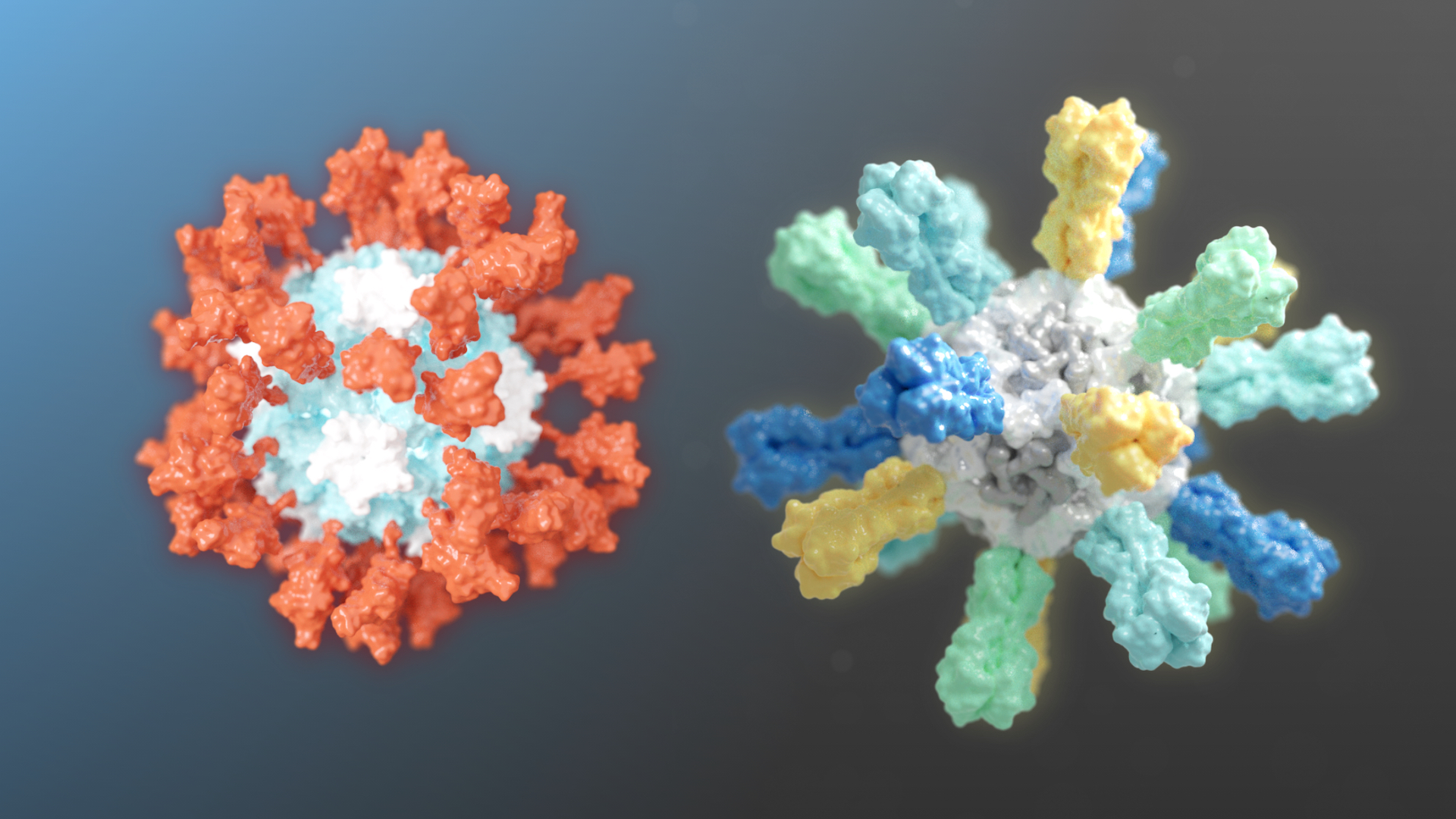
Two nanoparticle vaccines enter clinical trials
Two different candidate vaccines developed by researchers at the Institute for Protein Design recently entered human clinical trials. GBP510, a candidate COVID-19 vaccine, is undergoing a combined Phase 1/2 trial. Flu-Mos-v1, a candidate mosaic influenza vaccine, is undergoing Phase 1 testing. Candidate COVID-19 vaccine Our SARS-CoV-2 vaccine candidate was created with structure-based vaccine design techniques…
-
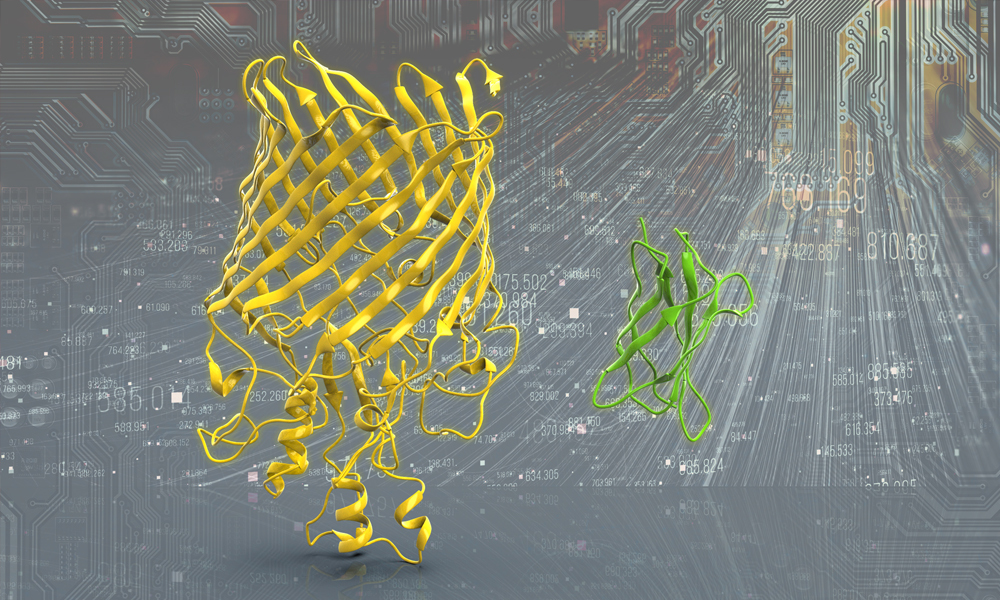
trRosetta yields structures for every protein family
The field of protein structure prediction has greatly advanced in recent years thanks to increasingly accurate deep-learning methods. A new such method, called trRosetta developed at the Institute for Protein Design, has now made thousands of protein structures available via EMBL-EBI’s Pfam and InterPro data resource. More than 6300 protein structures have been predicted in this way and are…
-
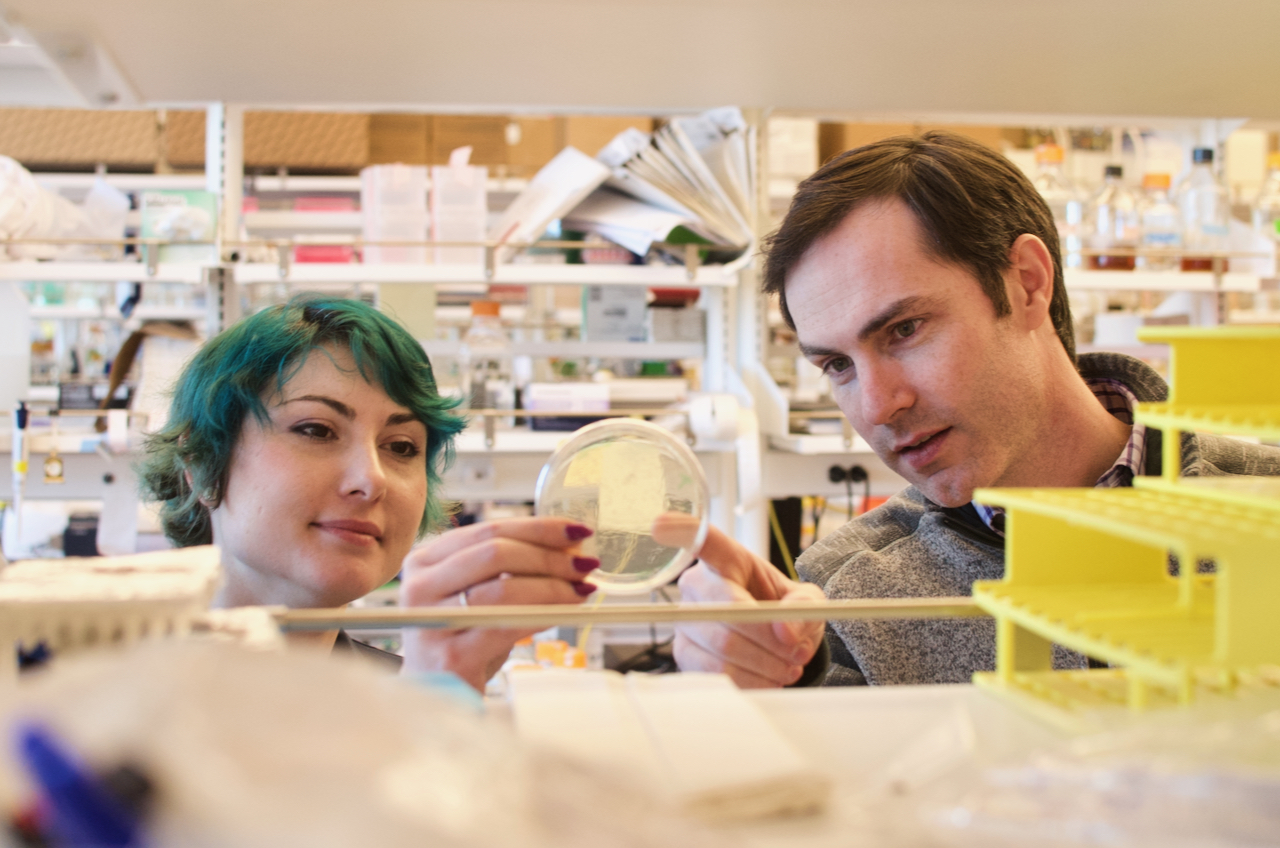
5 questions about designing coronavirus vaccines from our Reddit AMA
Researchers from our vaccine design team recently participated in a Reddit ‘Ask Me Anything’ about our SARS-CoV-2 vaccine research. Reddit users asked over a hundred questions by the time the live event ended — we are sorry we could not address them all. We were lucky to be joined by Lexi Walls, a postdoctoral scholar…
-
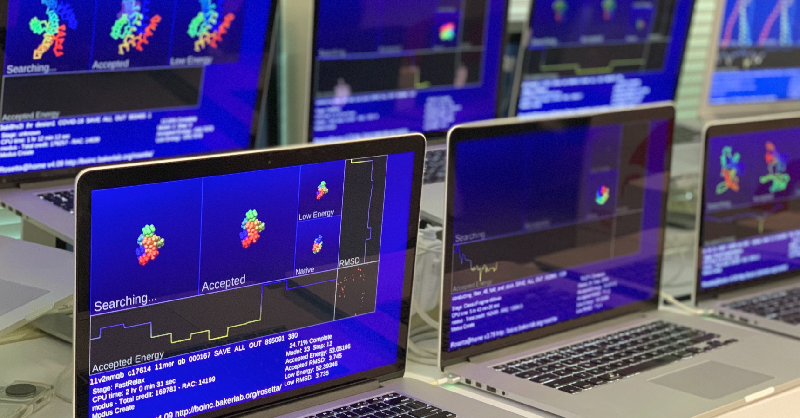
Volunteers rally to Rosetta@Home to stop COVID-19
As schools, museums, offices and stores shutter to slow the spread of the new coronavirus, millions of people are now finding themselves stuck at home. Fortunately, even in these trying times, there are are small steps that anyone can be take to help combat COVID-19. One option is to donate to biomedical research — but…
-
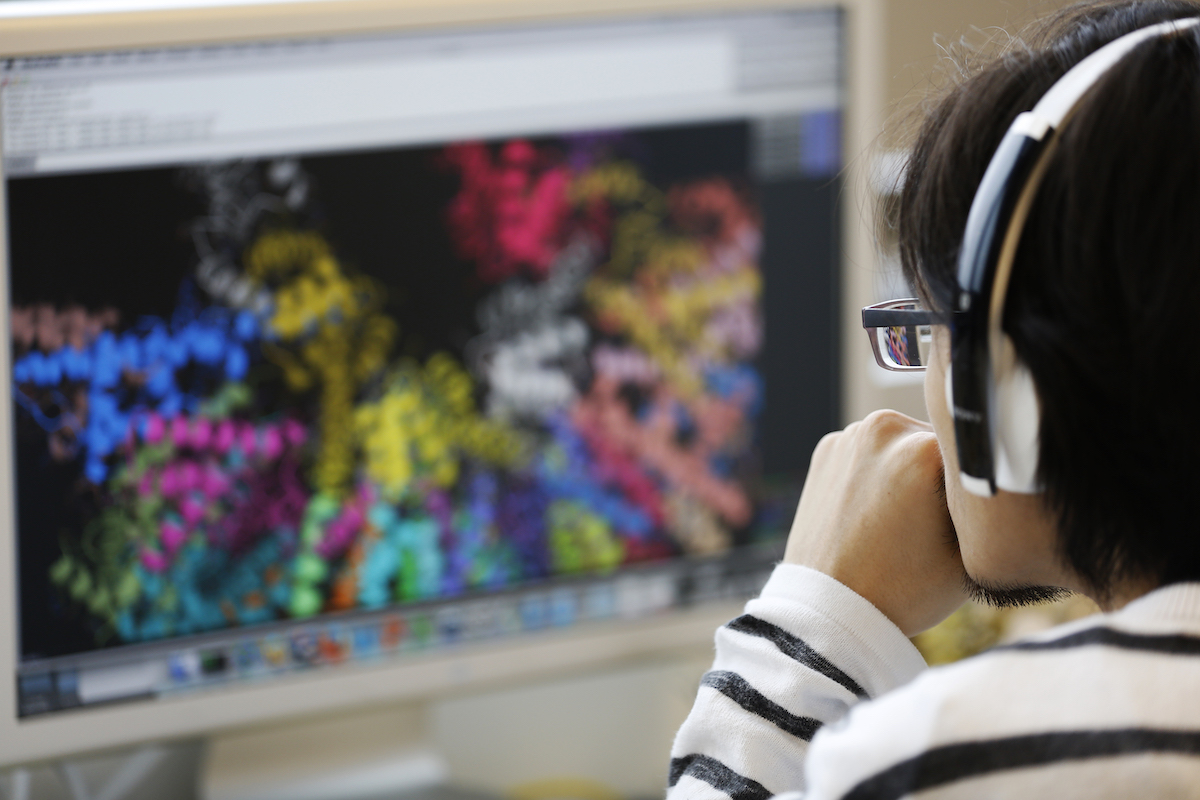
Feature: The computational protein designers
Jeffrey Perkel, technology editor at Nature, has just written a feature on de novo protein design. PDF
-
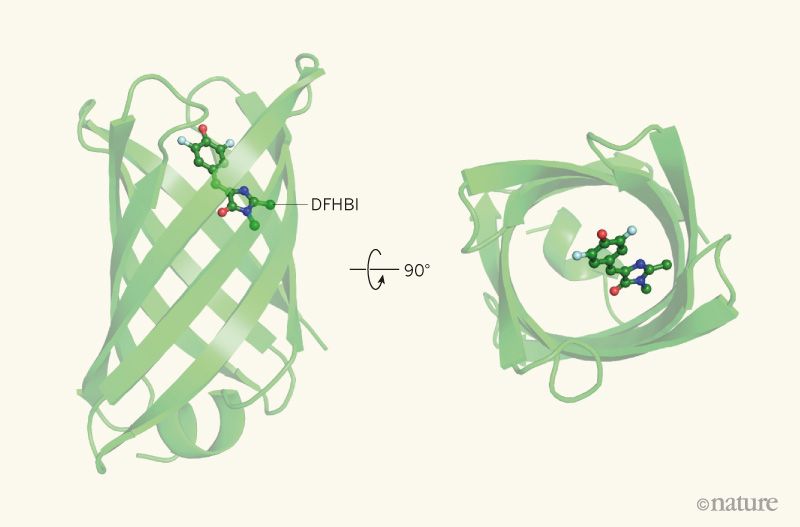
Our publication was voted ‘2018 Reader’s Choice’ by Nature News & Views
Readers of Nature News & Views selected an article about our work as their 2018 Reader’s Choice. The article, written by Roberto Chica of the University of Ottawa, details our recent publication on de novo fluorescence-activating proteins and explores the challenges of de novo protein design more generally. From the article: “The development and application…
-
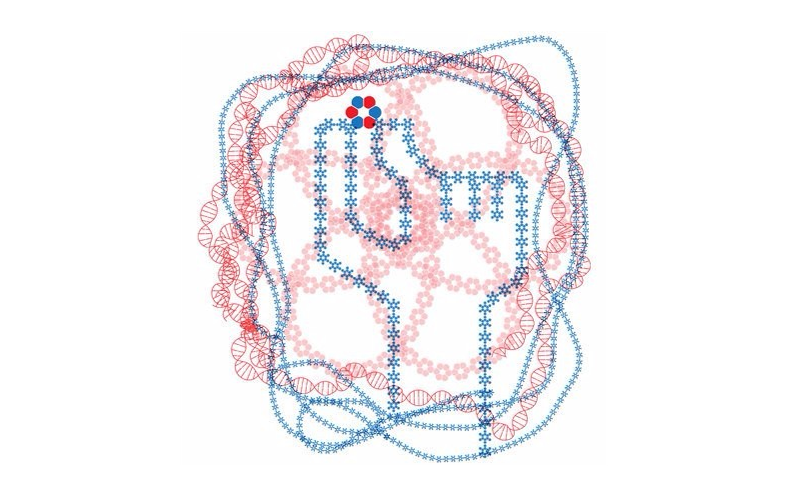
David Baker profiled in The New York Times
At the end of a historic year for protein design, the Baker Lab was honored to be profiled in the New York Times by science writer Carl Zimmer. He writes about the technology, progress, and promise in the field, including the contributions from our wonderful crowdsource participants. Graphic: John Hersey / New York Times On the…
-
September IPD News Roundup
RESEARCH IPD Translational Investigator, Dr. Ingrid Pultz, published a paper in JACS this month titled ‘Engineering of Kuma030: A Gliadin Peptidase That Rapidly Degrades Immunogenic Gliadin Peptides in Gastric Conditions‘. Using Rosetta to redesign the active site of the gliadin protease KumaMax – an enzyme computationally designed to break down gluten in the stomach – Dr. Pultz and…
-
August IPD News Roundup
RESEARCH Following the groundbreaking 2014 Nature paper describing the development of a computational method to design multi-component coassembling protein nanoparticles, comes a publication in Protein Science from Baker lab graduate student Jacob Bale and collaborators. Titled “Structure of a designed tetrahedral protein assembly variant engineered to have improved soluble expression“, the paper reports a variant of a previously low…
